|
Nutritional Value of Beets
- Benefits of Beet Juice
The nutritional value of beets is related to its unique pigments from the phytochemicals it contains. Betacyanin is the phytochemical responsible for the rich "amethyst" color of beets. It becomes very obvious whenever you start processing beets in the kitchen. Beets are very low in calories (45 cal/100 g), and contain only a small amount of fat. The nutritional benefits come particularly from fiber, vitamins, minerals, and some unique phytochemicals.
Beets (Beta vulgaris) are related to Swiss chard and spinach. In the 19th century, beets began to be widely-cultivated as a commercial crop and became the main source of sucrose for producing table sugar.
Many aspects of the nutritional value of beets also apply to the leaves. Both the beet root and beet greens are very powerful cleansers and builders of the blood. Here are some of the things to know about the nutritional value of beets.
Vitamins
Beets are loaded with vitamins including vitamins A, several B vitamins and C, E and K.
Vitamin A is required for maintaining healthy mucus membranes and skin and is essential for vision.
It contains significant amounts of vitamin C, a powerful natural
antioxidant
which helps to scavenge free radicals that can contribute to so many health problems.
The root is also a rich source of niacin (vitamin B3), pantothenic acid (vitamin B5), pyridoxine (vitamin B6). It also contains choline, folic acid, fiber and carbohydrates in the form of natural, digestible sugars.
Raw beets are an excellent source of folates which are necessary for DNA synthesis in the cells. When present in early fetal development, folates can help prevent neural tube defects.
Beet greens contain oxalic acid, a naturally-occurring substance found in some vegetables, which may crystallize as oxalate stones in the urinary tract in some people. Therefore, individuals known to have a tendency to develop urinary tract stones should be aware of this.
The root is a rich source of the phytochemical compound glycine betaine which was originally discovered in sugar beets. Betaine has the ability to lower homocysteine levels in the blood. Homocysteine, a highly-toxic metabolite, promotes platelet clotting as well as atherosclerotic-plaque formation, which can cause damage to blood vessels. High levels of homocysteine can result in the development of coronary heart disease (CHD), stroke and peripheral vascular diseases. Betacyanin significantly reduces homocysteine levels.
Beet greens are an excellent source of carotenoids, flavonoid anti-oxidants, and vitamin A and actually contain these compounds in concentrations several times higher than that in the roots. Consumption of natural vegetables rich in flavonoids helps to protect from lung and oral cavity cancers.
Minerals
The nutritional value of beets includes the rich source of minerals it contains. Here are the dominant ones found in beets.
Iron:
The most common problem associated with iron deficiency is
anemia.
One cup of beets provides 1.34 mg of iron. While this is not a high concentration there is something about the availability of the iron in beets to the body that makes is especially effective at countering anemia. Beet juice is recommended to increase the blood count for anemics and for those who have lost excessive blood due to accidents, menstruation, etc.
Magnesium:
Magnesium is absorbed in the small intestines and excreted through the kidneys. It is essential for the normal functioning of muscles and nerves and for boosting the immune system. It is known to prevent hypertension, cardiovascular disease and diabetes. A proper level of magnesium is needed to ensure a healthy regulation of blood sugar levels and blood pressure. One can get 39.10 mg of magnesium just by an intake of one cup of beet.
Manganese:
Our body needs about 12 to 20 mg of manganese for normal bone development, and for production of thyroxine, which is the main hormone of the thyroid gland. It is useful to build protein such as nucleic acid. Manganese is a trace mineral concentrated mainly in the kidney, liver, pancreas, skin, muscles and bones. It helps in active absorption of biotin, vitamin B1 and vitamin C. One cup of beet adds 0.55 mg manganese in the body.
Phosphorus:
Phosphorus is extremely essential for the formation of strong bones and teeth. It aids in speedy development and repair of connective tissues and cells, and for the production of the genetic building blocks; RNA and DNA. It plays an important role in maintaining a normal pH balance, and balances and metabolizes many important vitamins and minerals. One cup of beet provides the body with 64.60 mg of phosphorus.
Potassium:
One cup of beet contains 518.50 mg of potassium. Potassium is essential for the normal functioning of the kidneys. It aids in muscle contraction and a good level of potassium will ensure that muscles do not weaken. A good level is also necessary to maintain the correct balance of water electrolytes inside the human body.
Nutritional Value of Beets (fresh and raw)
(Source: USDA National Nutrient data base)
| |
Nutrient value |
Percentage |
| |
/100 g |
of RDA |
| Energy |
45 cal |
2% |
| Carbohydrates |
9.56 g |
7% |
| Protein |
1.61 g |
1% |
| Total fat |
0.17 g |
0.5% |
| Cholesterol |
0 mg |
0% |
| Dietary Fiber |
2.80 g |
7% |
| Vitamins |
|
|
| Vitamin A |
33 IU |
1% |
| Thiamin (B1) |
0.031 mg |
2.5% |
| Riboflavin (B2) |
0.057 mg |
4% |
| Niacin (B3) |
0.334 mg |
2% |
| Pantothenic acid (B5) |
0.155 mg |
3% |
| Pyridoxine (B6) |
0.067 mg |
5% |
| Folates |
109 mcg |
27% |
| Vitamin C |
4.9 mg |
8% |
| Vitamin E |
0.04 mg |
0.5% |
| Vitamin K |
0.2 mcg |
0% |
| Electrolytes |
|
|
| Potassium |
325 mg |
7% |
| Sodium |
78 mg |
5% |
| Minerals |
|
|
| Calcium |
16 mg |
1.5% |
| Copper |
0.075 mg |
8% |
| Iron |
0.80 mg |
10% |
| Magnesium |
23 mg |
6% |
| Manganese |
0.329 mg |
14% |
| Zinc |
0.35 mg |
3% |
| Phyto-nutrients |
|
|
| Carotene-ß |
20 mcg |
- |
| Betaine |
128.7 mg |
- |
| Lutein-zeaxanthin |
0 mcg |
- |
Note that the nutritional value of beets may be significantly depleted by extensive cooking. The red betalain pigments in beets are far less heat stable than red anthocyanin pigments in red cabbage. The difference between 15 minutes of steaming versus 25 minutes of steaming, or 60 minutes of roasting versus 90 minutes of roasting can be significant in terms of betalain damage. It is recommended that beets be steamed 15 minutes or less or roasted under an hour.
Cautions
People known to be prone to oxalate-containing kidney stones should limit their consumption of beets. Beet juice is very potent, so start slow and increase the amount as you become used to it. Perhaps start with the juice of half a medium-sized beet one time per week.
This delicious juice is so potent that it may cause some dizziness during cleansing as toxins are being eliminated through the circulatory system. This may cause some discomfort but there is nothing to be concerned about. Drink plenty of water to help flush out the toxins.
Beeturia is the condition of passing red or pink-color urine after eating beets or beet tops. This harmless condition can be found in 10-15% of the population who are genetically unable to break down the betacyanin pigment.
You can see from this that the nutritional value of beets is considerable. You would be wise to add them to your diet - grow them yourself or take advantage of the easy-to-use
beet juice powder.
Read about the many great
benefits of beet juice.
|
Keep up to date with
valuable insights into
pain management via
a healthy lifestyle.
Receive the monthly
Natural Pain Relief
Guide Newsletter.
News articles, health
tips, specials, freebies.
Enter your email and name
in the form to the right.
|
|
|
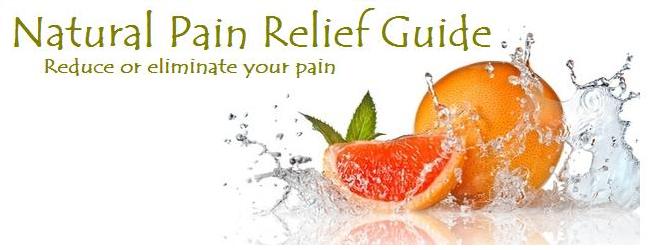

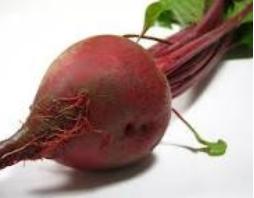
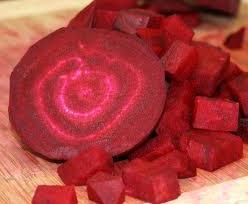
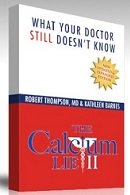

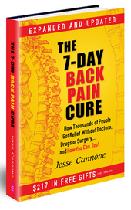



New! Comments
Have your say about what you just read! Leave me a comment in the box below.